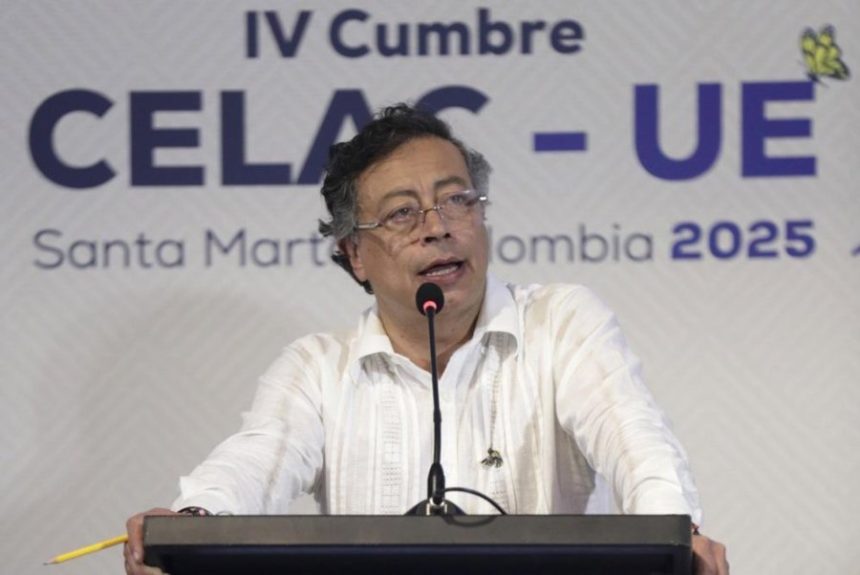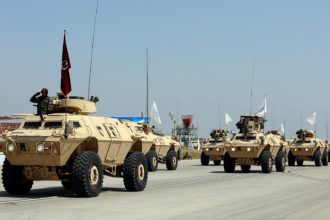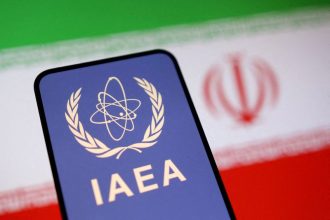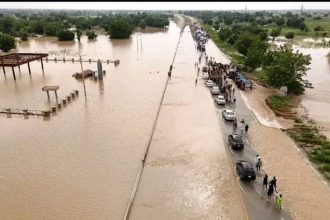Nov. 19 (UPI) — The death of at least 15 minors in four airstrikes authorized by the Colombian government has triggered a wave of ethical, political and legal questions over the use of force in areas where armed groups that recruit children and teenagers operate.
The Office of the Ombudsman announced an investigation to determine whether principles such as proportionality in the use of force were violated.
The agency’s director, Iris Marín, said “the presence of minors in armed camps does not justify an attack.” She urged President Gustavo Petro and the Ministry of Defense to suspend airstrikes while authorities review new cases of minors killed in recent operations.
Although at the beginning of his term Petro promised to negotiate with armed groups to achieve ‘total peace,’ deadly bombings have intensified in recent months.
According to an investigation published by El Espectador, the operations were carried out between August and Nov. 10 in the departments of Arauca, Guaviare and Amazonas, and targeted FARC dissident groups.
The victims were between 13 and 17 years old and had all been forcibly recruited by illegal armed groups.
In Colombia, the forced recruitment of children and teenagers by illegal armed groups remains a systematic practice. These organizations exploit the absence of the state, poverty and a lack of protection to bring minors into their ranks. Children are used as messengers, lookouts, fighters or human shields, exposing them to extreme violence, abuse and death.
Petro defended the legality of the operations.
“They say we should not carry out airstrikes. A mistaken position that leads armed drug-trafficking groups to recruit more and more children, violating IHL [International Humanitarian Law]. These groups believe that by recruiting children they protect their commanders and bosses. That belief must evaporate,” he wrote on X.
In another statement issued Sunday, Petro said the operation was carried out in accordance with international law and was not an indiscriminate airstrike. Even so, he acknowledged the pain it caused.
“I will carry that sorrow on my conscience. I ask forgiveness from the mothers of those children. They never should have been there,” he said.
The Colombian president responded to the Office of the Ombudsman’s request by making clear that there will be no suspension of the use of force.
“If there are offensive actions by armed drug-trafficking groups, airstrikes will not be suspended. Every action I have ordered and will order going forward will be subject to IHL. Military action is not ideal, but if certain groups do not want to make peace, we will act,” Petro said.
Former President Ernesto Samper compared the events to the conflict in Gaza.
“Indiscriminate bombings, without first determining possible harm to the civilian population — especially when children are involved — are absolutely prohibited under International Humanitarian Law,” Samper wrote on X.
He said there is no difference between the seven children killed in the government airstrikes in Guaviare and “the thousands of innocents sacrificed by genocidal Israeli fire in Gaza and the crew members killed on the boats sunk by the overwhelming nuclear fire of the U.S. naval fleet in the Venezuelan Caribbean.”
Organizations such as Human Rights Watch and Save the Children have warned that the forced recruitment of children remains systematic in conflict zones, and that the state must prioritize rescue strategies rather than lethal confrontation.









